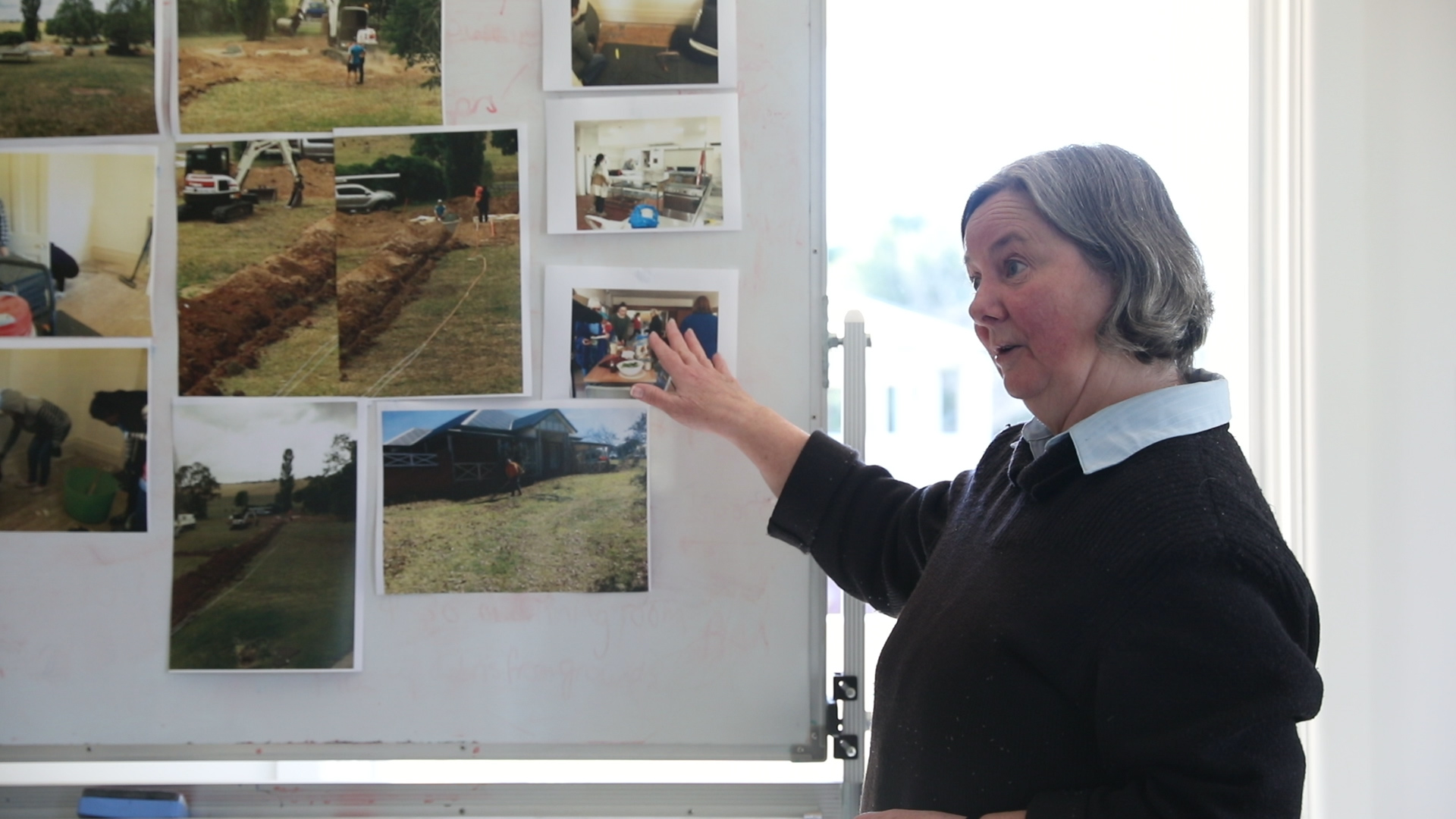What is your name?
Kate Cleary
How long have you been in the Canberra region?
15 years
How would you describe The Farm?
The Farm is a residential program for women recovering from substance abuse, domestic violence, and other life depleting situations. It has a particular focus on women whose children are in out of home care and works with the women towards the restoration of their children.
How did you get involved?
The project came about as the result of an informal outreach to women on public housing complexes in Canberra where the volunteers were noticing severe deprivation among those visited, including the fact they had children whom they were unable to care for due to these deprived life circumstances. The volunteers felt there was a need for residential care for the women and a treatment setting where they could recover and work towards the return of their children. An empty convent was discovered an hour and a half out of Canberra in a remote location and negotiations began to acquire it. These were successful and thus the Farm was born.
What do you love about working at The Farm?
The most rewarding part of the work is seeing the gradual healing of the women as they take on the different elements of the program: the reduction of trauma, the development of self-awareness and self-efficacy, long dormant skills being discovered in a range of different areas, the achievement of employment and the restoration of their children. It is a particularly great cause for celebration when children are returned to their mothers on site.
How has The Farm incorporated the different needs, interests, and circumstances for women in the program?
Many factors combine to ensure the treatment elements are addressing the varied and complex needs of the clients. First, the treatment setting is a beautiful convent set on a three-hectare garden away from all prior connections and reminders of the past. It sets the stage for a change of life. Next, we have been extremely fortunate in our staff including a very skilled and experienced parenting therapist, highly qualified and committed case managers, a dedicated VMO and psychologist, as well as a dentist who gives his time pro bono. The treatment method also assists clients by providing interventions that develop a strong skill set to ensure relapse doesn’t occur post treatment. Early rising, living to a schedule, expectations of success and progress, accountability, and affirmation, all encourage the clients to achieve things beyond simply abstaining from drugs. In this setting they discover that they are competent and have an innate dignity – often the first time they have been made aware of this.
Substance abuse is complex, what’s one misconception out there that you would like to put straight?
It’s not about the substance, it’s about the reasons for using the substance: Substance abuse is the tip of the iceberg above a host of complex social and personal issues that our clients present with, usually stemming from the complex trauma of their childhoods. The first step is to remove substance use from their lives, but to sustain this initial change and to develop beyond it, clients need to learn about themselves. They need to assess who they are and what they value and commit to a permanent change that aligns with these values.
For anyone thinking about donating or volunteering with The Farm, what would you say to them?
The donation of funds is always welcome as we do not receive ongoing government funding. Clients contribute $350 per week to their treatment costs which is about 20% of overall costs. The remaining costs are sourced through private donors. Donations can be made through the website.
People interested in volunteering can phone the Farm to inquire about opportunities. Volunteering involves training and a level of commitment because of the vulnerable nature of the clients and the structure of the program.
Next Article
Meet Sandy Lendrum
